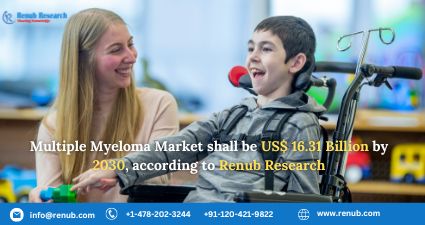“TRT” stands for Testosterone Replacement Therapy. It’s a medical treatment used to supplement or replace the body’s natural production of testosterone. This therapy is often prescribed to men who have low levels of testosterone, which can result in various symptoms like fatigue, decreased libido, muscle loss, and mood changes. TRT can be administered through gels, patches, injections, or implants under the supervision of a healthcare professional.Testosterone is a hormone discovered in both males and females. Still, it is primarily known as the “male sex hormone” because it is crucial in developing male reproductive tissues and characteristics. However, you will easily find testosterone treatment near you.
The testes are the primary source of testosterone production in males, although smaller amounts are also produced in the adrenal glands. During puberty, testosterone levels increase, leading to secondary sexual characteristics like increased muscle mass, body hair growth, deepening of the voice, and the development of the Adam’s apple.
Are you eligible for Testosterone Replacement Therapy?
Testosterone Replacement Therapy (TRT) is a medical treatment primarily designed for individuals with low testosterone levels.
Eligibility for TRT typically involves the following criteria:
- Clinical Symptoms of Low Testosterone
- Blood Test Confirmation
- Absence of Contraindications
- Age Consideration
- Discussion of Risks and Benefits
- Commitment to Ongoing Monitoring
It’s crucial to emphasize that self-administering testosterone or obtaining it without a prescription is dangerous and illegal. Always consult a qualified healthcare provider if you believe you may benefit from TRT or have concerns about your testosterone levels.
Benefits of TRT
Testosterone Replacement Therapy (TRT) is a medical treatment aimed at restoring and maintaining optimal testosterone levels in men with lower-than-normal levels. Here are five detailed points on the benefits of TRT:
- Improved Mood and Mental Well-being
Studies have shown that TRT can lead to improved mood, reduced irritability, and decreased feelings of depression. This is particularly notable in men with low testosterone levels, as low testosterone has been linked to mood disorders.
- Increased Muscle Mass and Strength
Testosterone is a crucial hormone in the development and maintenance of muscle mass. TRT can increase lean muscle mass and strength, making it an essential treatment for conditions like hypogonadism, where muscle wasting is a concern
- Enhanced Bone Density
Testosterone plays a paramount role in maintaining bone density. Low testosterone levels can lead to osteoporosis and an increased risk of fractures. TRT can help improve bone density, reducing the risk of fractures and promoting overall bone health.
- Improved Libido and Sexual Function
Testosterone is vital for sexual health and function in men. TRT can lead to increased libido, improved erectile function, and enhanced overall sexual satisfaction. It’s especially beneficial for men with hypogonadism or other conditions leading to low testosterone levels.
- Increased Energy Levels and Vitality
Many men with low testosterone report feeling fatigued and lacking energy. TRT has been shown to increase energy levels, improve overall vitality, and reduce feelings of fatigue. This can lead to a better quality of life and improved performance in daily activities.
You can easily find TRT by searching”Testosterone treatment near you” in any search engine.
Risks & side effects of TRT
Testosterone Replacement Therapy (TRT) can benefit individuals with low testosterone levels, but it is not without potential risks and side effects. Here are five detailed points on the risks and side effects of TRT:
- Cardiovascular Risks
Studies have suggested a potential association between TRT and an increased risk of cardiovascular events such as heart attacks and strokes, particularly in older men or those with pre-existing cardiovascular conditions. It’s essential for individuals considering TRT to undergo a thorough cardiovascular evaluation before starting the therapy.
- Polycythemia
TRT can lead to increased red blood cell production, a condition known as polycythemia. This can potentially increase the risk of blood clots, which can be particularly concerning for individuals with a history of thromboembolic events or conditions predisposing to clotting disorders.
- Prostate Health
There is ongoing debate about the potential impact of TRT on prostate health. Some studies have suggested that TRT may exacerbate pre-existing prostate conditions or potentially increase the risk of developing prostate cancer. It is crucial for individuals considering TRT to have a comprehensive prostate evaluation before starting the therapy and to be monitored regularly by a healthcare provider.
- Fertility and Testicular Atrophy
TRT can suppress the body’s natural testosterone production, decreasing sperm production and testicular size. This can result in reduced fertility. Men who wish to maintain fertility should discuss alternative options or consider concurrent treatments, such as fertility preservation techniques, with their healthcare provider
- Mood and Behavioral Changes
Some individuals may experience mood swings, irritability, or changes in behavior while on TRT. This could be due to alterations in hormone levels and should be closely monitored. Communicating any significant mood changes to a healthcare provider, who can adjust the treatment plan as needed, is essential.
Should you consult your doctor about testosterone therapy?
If you’re considering testosterone therapy, discussing it with your doctor is essential. They can provide personalized advice based on your specific health situation, medical history, and any underlying conditions you may have.
Talking to your doctor about testosterone therapy is crucial for several reasons:
- Medical Assessment: Your doctor can thoroughly assess your low testosterone levels and if testosterone therapy is appropriate for you.
- Potential Risks and Benefits: Your doctor can explain the potential benefits of testosterone therapy and any associated risks or side effects. This includes considerations like impacts on fertility, cardiovascular health, and prostate health.
- Alternative Treatment Options: Your doctor can discuss alternative treatments or lifestyle changes that may address the underlying cause of low testosterone, if applicable.
- Monitoring and Follow-Up: If you decide to undergo testosterone therapy, your doctor will monitor your progress, making sure the treatment is effective and safe.
- Guidance on Dosage and Administration: Your doctor will guide you to the appropriate dosage and administration method for testosterone therapy, ensuring it is tailored to your individual needs.
Conclusion
Testosterone Replacement Therapy (TRT) has proven to be a viable solution for individuals with clinically low testosterone levels, significantly improving various aspects of their health and well-being, including muscle mass, bone density, mood, and libido. However, healthcare professionals should carefully monitor its administration due to potential side effects and individual variations in response. Understanding the risks and benefits is crucial in determining whether TRT is the appropriate course of action, emphasizing the importance of personalized medical evaluation and ongoing supervision to optimize its effectiveness and safety.



